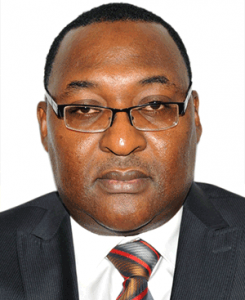Anthony Enebili, a clearing and forwarding agent whose five containers were trapped in Apapa Port on Monday, November 3, 2014, is still full of regrets. He was shocked when he got to the port gates and was told that no clearing agent would clear any container.
Enebili was aware of the impending strike by clearing agents on Friday, October 31, when he struggled in vain to take delivery of the containers from APM Terminal. But he thought it was one of those empty threats by freight forwarding associations.

He took the threat of strike with a pinch of salt because the associations hardly agree on issues.
Reality dawned on him, however, when for two weeks he faced the anger of a client based overseas whose contract with him was now under threat.
That was the agony that befell Enebili and others when licensed customs agents withdrew their services from the port from Monday, November 3 to Saturday, November 15.
The business community lost an estimated N60 billion during the strike.
Background to face off
Private terminal operators (PTOs), commonly referred to as concessionaires, have remained a thorn in the flesh of importers and customs licensed agents since 2006 when port concession began.
Operating without a regulatory body or clear rules, the PTOs – now under the umbrella of Seaport Terminal Operators Association of Nigeria (STOAN) – are accused by clearing agents of arbitrarily raising port and terminal charges, as well as other charges, which are illegal.
Besides, inefficiency marks the services rendered by PTOs because they lack the equipment and manpower to effectively handle the volume of daily imports.
Because of the shortcomings, importers and agents have demanded extension of the storage period from three days to seven. The storage period is the days of grace PTOs grant importers to pay levy and demurrage on containerised imports.
Importers and their agents have also pressed for a reduction in shipping charges from N26,500 to N23,850 for a 20-foot container; and from N48,000 to N40,000 for a 40-foot container.
This demand was equally bluffed by STOAN.
Another contention between STOAN and clearing agents is about container deposits. Clearing agents complain that concessionaires are reluctant to refund payment when they return containers.
These disagreements cause sleepless nights for many businessmen, who nickname STOAN “monster”.
A businessman, Emmanuel Uneze, lamented that “when you ask for your consignment to be examined, it has to be positioned by the terminal operator.
“If it takes three or four days for them to deploy their equipment to position your container, you are made to pay demurrage for those days. It doesn’t matter that the delay came from them.
“Although some of them have attributed the delay to insufficient equipment, I believe it is just deliberate tactics on their (STOAN’s) part to make more money. “We pay N12 per day for demurrage. You can imagine what happens when you have to wait a week simply because the terminal operator is not ready.”
Pius David, a licensed customs agent, also denounced PTOs for their ill-equipped terminals which painful effects fall on importers.
“If you are unfortunate to have the forklift go bad while your container is being lifted or stacked, you may be told to raise a debit note to cover the damage.
“If in the process of arranging containers a piece of equipment gets damaged, the importer is charged for the damage. It is really frustrating. Even if you complain, no one listens,” David said.
“It is one thing to pay the container deposit and another to get it back after the empty container has been returned. The shipping agencies have this policy of making daily deductions from your deposit until the container is returned.
“So, if it takes a week to get the container out of the port to the warehouse and back, deductions will be made daily until you return it. I see no reason why any deduction should be made at all when importers and clearing agents have no plans to keep containers.”
Based on these and other numerous complaints, many who do business in Nigerian ports say they are the costliest in the world.
APM Terminal in the thick of it
The Nigerian Shippers Council (NSC), which takes care of the welfare of shippers, urged decorum from PTOs, demanded an increase in storage period, and reduction in charges.
But these demands irritated STOAN and it sued the NSC to court for allegedly meddling in its affairs.
APMT, which has the largest container terminal, is the arrowhead of the court action. Because of alleged inefficiency and high charges, APMT has grappled with image problem since it took over the terminal in 2006.
Perceiving APMT’s disregard for the NSC, some associations agreed to withdraw their services from Apapa Port.
They included the Association of Nigeria Licensed Customs Agents (ANLCA), National Association of Government Approved Freight Forwarder (NAGAFF), Council of Managing Directions of Licensed Customs Agents (CMDLCA), Association of Registered Freight Forwarders of Nigeria (AREFFN), and Association of mainline Truck Owners (AMATO).
They issued a joint statement, saying: “We call on relevant government agencies at federal and state levels, Nigerian Labour Congress (NLC), Trade Union Congress (TUC) and others to rise and rescue Nigeria from the hands of these colonial merchants.”
ANLCA President, Olayiwola Shittu, alleged that “APM Terminal has grown to become like a sovereign within the sovereignty of Nigeria.
“They don’t care, they abuse people, they walk out of meetings. They boast; quote me. They boast that (former President Olusegun) Obasanjo and (former Head of State Ernest) Shonekan are behind them and no power can let them go beyond what they are doing.
“To cap it all, they go beyond the issue of why we are reacting; they said when Nigerians are hungry, they will go back to work. That is insulting, it is unacceptable.”
But APMT spokesman, Bolaji Akinola, countered that “the blockade of the APM Terminal is simply a reckless act capable of hurting the nation’s economy.
“STOAN is calling on the police, NPA (Nigerian Ports Authority) and other concerned authorities to clear the blockade and allow those who wish to clear their cargoes at the affected terminals to have access to them.”
Discordant tunes
The strike ended with the associations disagreeing among themselves and singing discordant tunes.
This is common in the freight forwarding community known for the war of attrition, betrayal, and backbiting in its ranks when personal interests trump common agenda.
Before the strike ended on November 15, a demand for N360 million compensation for losses made to PTOs by clearing agents tore the associations apart.
NAGAFF founder, Boniface Aniebonam, allegedly ordered the withdrawal of NAGAFF members from the strike because of the demand for compensation.
He condemned the strike for its effects on the economy.
AREFFN President, Frank Ukor, also knocked the strike, insisting that the NAGAFF and ANLCA were using it to wreck the economy.
And NAGAFF President, Eugene Nweke, said the strike posed a threat to the economy.
Way forward
At the behest of Port Police Commissioner, Hilda Ibifuro-Harrison, APMT and the agents reached agreement on some of issues, which led to the end of the strike.
But the Ikeja High Court has fixed tomorrow, December 1 to rule on whether the NSC is qualified to regulate STOAN.
Until the case is determined, and other complaints resolved, the status quo remains at the Apapa Port.
















